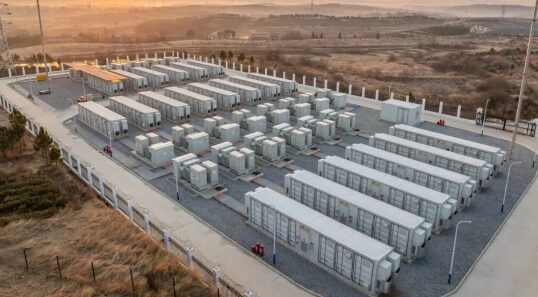Unlocking the future of energy: The role of redox flow batteries in achieving net zero
 Redox flow batteries could play an important part in our move to net zero. Image: University of Manchester.
Redox flow batteries could play an important part in our move to net zero. Image: University of Manchester.
A new article from a University of Manchester researcher highlights the importance of long-duration energy storage (LDES) technology in the move towards net zero.
In an article published on the Policy@Manchester site, Professor Robert Dryfe emphasised the need for better battery energy storage systems (BESS), as well as calling attention to the University’s research into redox flow batteries (RFBs).
Professor Dryfe argues that “a transition to renewables must be accompanied by a transition of technology to large scale battery storage” alongside “a similar transition to the storage needed to ‘stock’ this renewable energy.”
While lithium-ion batteries are the most used technology in the battery space, problems with these systems hinder their usefulness in some regards: their flammability, which limits their use in airports and ports, and their use of rare earth elements, including cobalt, which drives up their cost significantly.
In response to this, researchers at the University of Manchester have been conducting research into RFBs, aiming to harness the advantages of this technology while addressing the current barriers to mass implementation of RFBs.
Currently, RFBs can be prohibitively expensive due to their reliance on vanadium, a rare and thus extremely expensive element. However, Professor Dryfe and his research team said they “are developing systems that avoid the need for use of relatively rare materials, such as vanadium”, adding “our work developing ‘post-vanadium’ technology also has the advantage of low flammability and being non-corrosive.”
Professor Dryfe notes that the UK’s commitment to decarbonising the electricity system by 2035 and reaching net-zero emissions by 2050 “will require significant changes in domestic and industrial power supplies as these sectors represent a large percentage of overall energy use.”
He and his research team strongly believe that RFBs, as a major part of an expansion of LDES technology, are the key to the UK’s energy transition. Professor Dryfe states: “To accelerate the scale and decrease the cost of battery storage, the UK needs to encourage investment in technologies that are capable of longer-duration storage, which in the battery context means developing new types of RFBs that break the current reliance on critical materials such as vanadium.”
This content was collected from the Internet. If you want to it, please contact grace solar management.